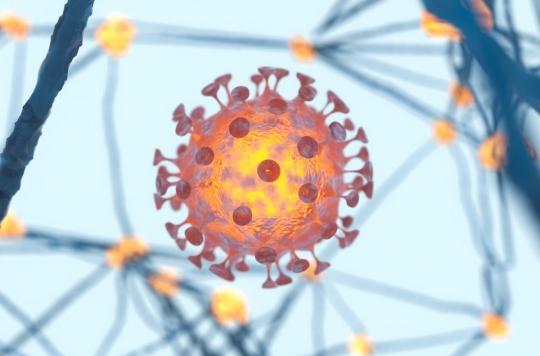A phase 3 clinical trial would have confirmed the preventive effectiveness of the antiviral against severe forms of Covid-19 at the first signs of infection.

- Nitazoxanide is a treatment with antiviral and anti-inflammatory properties.
- This drug does not attack the virus head-on but creates an unfavorable environment for the progression of the virus in the body.
- The results showed that nitazoxanide reduced the rate of hospitalization by 79% compared to placebo and the rate of progression to severe disease by 85%.
Will the first preventive anti-Covid treatment see the light of day? In a phase 3 clinical trial, nitazoxanide would have shown its effectiveness in preventing the SARS-CoV-2 infection from degenerating and leading to a severe form of Covid-19. Conducted in the United States, the randomized trial would confirm that the treatment with antiviral and anti-inflammatory properties is well tolerated by patients and effective in naïve populations, i.e. those who have not been previously infected. . The results were pre-published on April 20 in the journal medrXiv and remain pending peer review.
An 85% reduction in the rate of progression to a severe form
The Phase 3 trial involved 1,092 patients, between August 2020 and January 2021, at 36 different centers in the United States and Puerto Rico. To study the effects of this treatment on recently infected patients, they had to present a minimum of symptoms, such as breathing difficulties, fatigue or loss of taste or smell, for less than 72 hours. A total of 379 patients from the recruited cohort met these criteria and received the drug. Among them, around two-thirds were carriers of at least one risk factor that could promote progression to a severe form. The patients were followed for 28 days, both clinically and biologically since the researchers regularly measured the presence of antibodies.
The researchers studied the response time to treatment, the evolution of clinical signs quantified by score scales and the viral load. They also looked at the rate of reduction in hospitalizations and the rate of progression to severe forms. Nitazoxanide was given to patients as an oral sustained-release tablet that provides continued treatment action that has been tested with twice daily doses for five days.
An environment unfavorable to the progression of the virus
The results show that nitazoxanide reduces the rate of hospitalization by 79% compared to placebo and the rate of progression to a severe form by 85%. These results would have been confirmed regardless of whether the patients had a risk factor or not. Furthermore, the drug was reportedly well tolerated by the participants.
Nitazoxanide acts in different ways to prevent SARS-CoV-2 from causing damage in the host through several immunomodulatory mechanisms. This treatment does not attack the virus head-on but creates an environment unfavorable to its progression. This medicine has an inhibitory effect on the main viral proteins produced by the virus. It also reduces the energy charge of virus-infected cells, decreasing its ability to multiply. It also inhibits the cytokines that cause over-inflammation and severe forms of Covid-19. It is able to block a site in the Spike protein, which allows the virus to attach to host cells, which is a frequent source of mutants.

.















